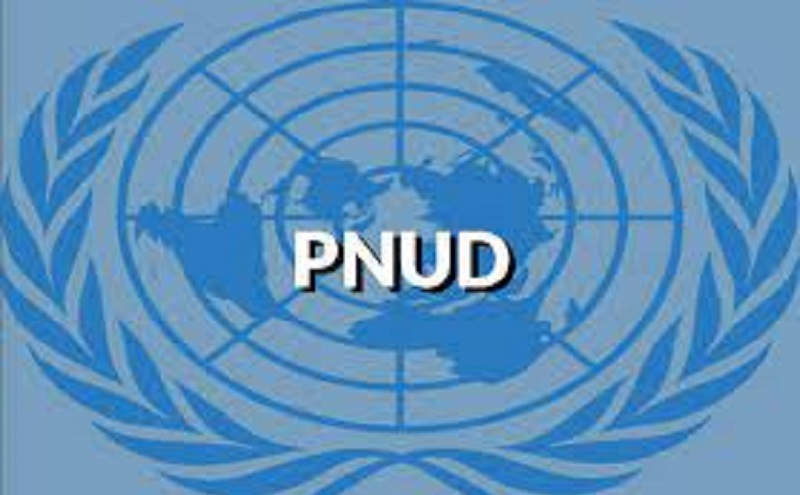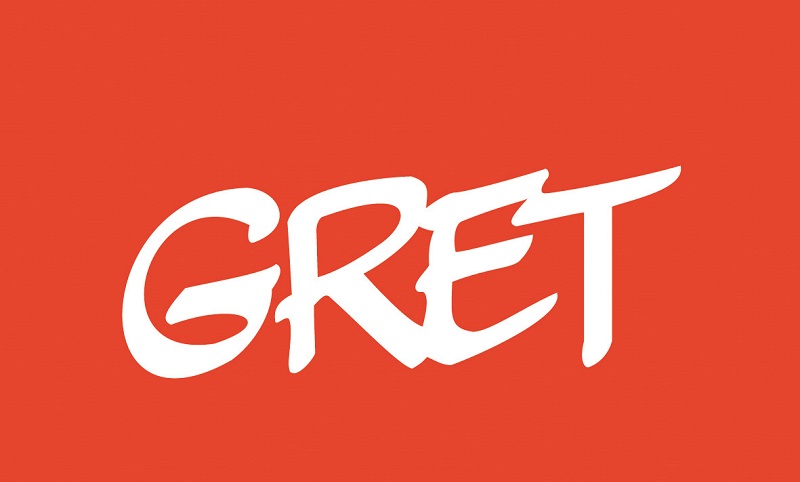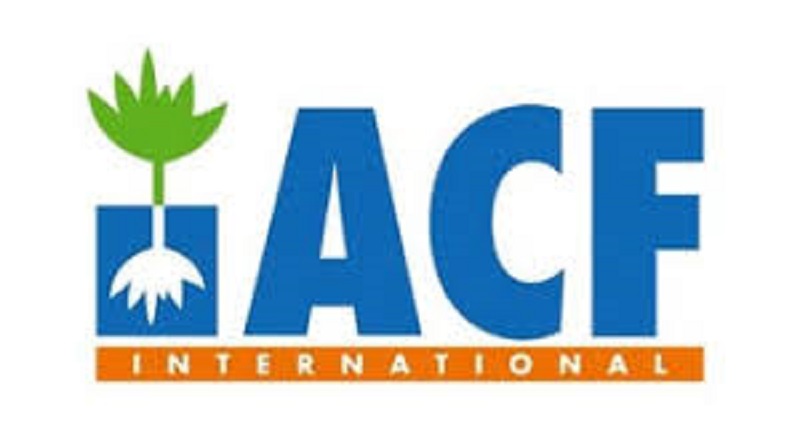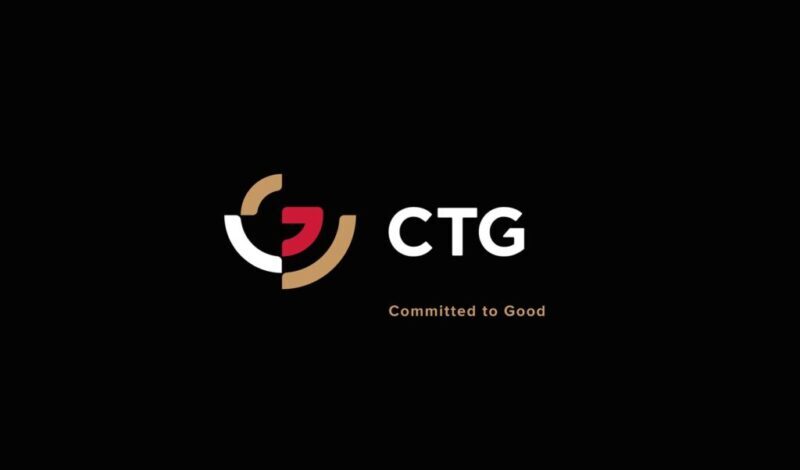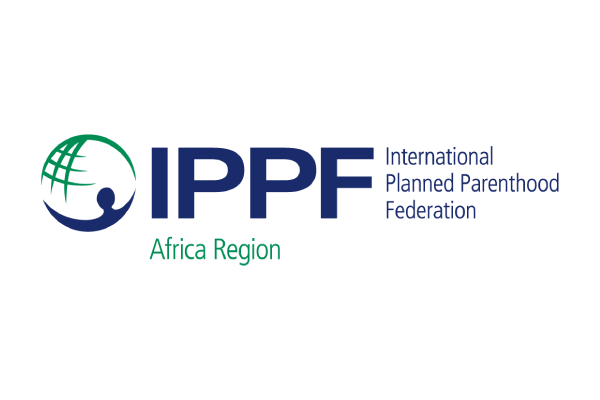Le Programme des Nations unies pour le développement (PNUD) fait partie des programmes et fonds de l’ONU. Son rôle est d’aider les pays en développement en leur fournissant des conseils mais également en plaidant leurs causes pour l’octroi de dons
Poste 1 :
| Expert en Gestion de l’Environnement / Renforcement engagement UNEP au Togo | ||
|---|---|---|
| Procurement Process : | IC – Individual contractor | |
| Office : | BUREAU DU PNUD – TOGO | |
| Deadline : | 28-Sep-22 | |
| Posted on : | 14-Sep-22 | |
| Development Area : | CONSULTANTS | |
| Reference Number : | 95657 | |
| Link to Atlas Project : Non-UNDP Project |
||
| Documents : Termes de référence Lettre de soumission Formulaire P11 |
||
| Overview :
Objectifs de la mission L’objectif général de la mission est de fournir un appui opérationnel et adapté en matière de gestion et de visualisation de l’information dans la mise en œuvre du plan d’action élaboré pour le renforcement de l’engagement de l’UNEP auprès du Coordonnateur Résident et de l’équipe de pays des Nations Unies au Togo dans le cadre de la préparation, la mise en œuvre et l’évaluation des cadres de coopération du SNUD avec le gouvernement du Togo, notamment le Bilan commun de pays (CCA) et le cadre de coopération pour le développement durable des Nations Unies (CCDD) en réponse aux priorités du pays. |
||
Poste 2 : National Economist – Democratic Republic of Congo
BACKGROUND
The Economist Programme is one of RBA’s most valued initiatives in enhancing policy support and capacity in our programme countries. It is particularly more relevant now that the 2030 development agenda and the African Union Agenda (Agenda 2063) are being rolled out at the national and regional levels. Sitting on an important inflection point, Africa has adopted structural transformation, investments in human development and green growth as its key guiding policies for Africa’s growth and development. Moreover, the political transition following the December 2018 elections has raised enormous hopes for political stability and economic recovery in DRC. As such, enhanced policy support capacity at country level, to take forward Africa’s and DRC’s agenda, is an imperative.
Under the guidance and direct supervision of the Senior Economist, and reporting to the Resident Representative, the National Economist effectively supports UNDP and the UN Country Team in the preparation and implementation of country programme processes and outputs, including the Country Programme Document (CPD), Common Country Assessment (CCA), and the Sustainable Development Partnership Framework (SDPF), monitoring the implementation of the Sustainable Development Goals (SDGs) while ensuring their alignment with national development plans and priorities supports UN reform initiatives; supports advocacy for UN activities, particularly in relation to the Sustainable Development Goals (SDGs); supports the implementation of the CPD and the resource mobilization strategy and provides analytical support in addressing economic and development issues. The National Economist plays a key role in the production and launch of the Human Development Reports (Global and National) and in advocacy for the SDGs.
In providing appropriate and creative responses to emerging challenges and opportunities within UNDP and the UNCT and the donor community, the National Economist works closely with UNDP/UNCT programme staff, donors and implementing partners, as well as with relevant government departments, the private sector and civil society organizations. The National Economist liaises with UNDP Headquarters staff to resolve complex programme issues and for information sharing.
Position Purpose
Under the direct supervision of the Senior Economist, the National Economist is responsible for performing the following functions : (1) Effective support to UNDP and UNCT in the preparation and implementation of country programmes, processes and outputs, including CPD, CCA and CPDF; (2) Advice to Government partners and facilitation for knowledge acquisition and management; (3) Development of strategic partnerships and support to resource mobilization; (4) Advocacy and promotion of awareness of the mandate and mission of the United Nations and UNDP; (5) Provide appropriate and creative responses to emerging challenges and opportunities.
DUTIES & RESPONSIBILITIES
Provide advice and support to UNDP management, UNCT, programmes and projects, aiming to achieve the following results:
- Collection, analysis, and interpretation of economic and statistical data, in-depth research of economic and development issues at the country level, and preparation of high-quality analysis and reports.
- Advising on issues of concern to UNDP and or adjustments to ongoing programmes, to ensure that UNDP programmes are aligned with national policies and priorities.
- Contribution to the preparation and implementation of country programming processes and products, including CPD, CCA and UNSDCF.
- Under the supervision of the senior economist, provides high-quality policy advice to RR/RC in policy dialogues with host governments, the UN System, and other strategic partners on economic issues, most notably in relation to inclusive growth, inequalities, and achievement of the SDGs, with the Government, donors, civil society, and the private sector.
- Reviews and disseminates best practices and lessons learnt from the implementation of projects and programmes with a view to strengthening upstream engagement within UNDP.
Provides advice and support to government partners and facilitates knowledge development and management, aiming to achieve the following results:
- Policy-relevant research and dissemination of results through publications.
- Collects, analyses and synthesize macro-economic and SDG-related information and best practices, paying attention to poverty, gender, inequality, and governance aspects, and be able to propose policy options to relevant government departments.
- Facilitation of policy dialogue on economic issues with Government, donors, civil society, private sector, and relevant contributions to policy development.
- Support to the national side, at central, provincial, and territorial levels, in MDG-based development planning, programming, and budgeting,
- Proposing policy options to government agencies and other development actors, particularly in pro-poor perspectives, on macro-economic and development issues.
- Development of national statistical capacity and macroeconomic and sectoral policy management, and support to the formulation of overall and sectoral public policies and strategies at central and provincial levels.
- Support to the formulation and the implementation of the Local Development Program for the 145 territories (PDL-145T).
- Support for the establishment of a monitoring and evaluation system for public policies at national and provincial levels
- Significant contributions to knowledge networks and communities of practice through the identification of best practices and lessons learned.
- Keeps abreast of regional and global economic trends and issues and analyses their implications for the realization of the SDGs and Africa’s vision 2063 in Africa.
- Support to training and capacity building of UNDP staff and government officials on economic issues.
Ensures creation of strategic partnerships and implementation of the resource mobilization strategy on achievement of the following results:
- Development of partnerships with the UN Agencies, IFI’s, government institutions, bi-lateral and multi-lateral donors, private sector, civil society areas based on strategic goals of UNDP, country needs, particularly in relation to the SDGs, and donors’ priorities.
- Maintain and sustain critical working relationship at technical advisory level with World Bank counterparts on various areas of common programming and interest.
- Analysis and research of information on donors, preparation of substantive briefs on possible areas of cooperation.
- Keeps track of the changes in the aid effectiveness/development cooperation environment and external resource management matters and assists Government and UN/UNDP in resource mobilization to meet the SDGs through, among other things, preparation of policy papers and options for domestic resource mobilization as well as for donor round table and consultative meetings.
- Development of partnerships with the UN Agencies, IFI’s, government institutions, bi-lateral and multi-lateral donors, private sector, civil society areas based on strategic goals of UNDP, country needs, particularly in relation to the SDGs, and donors’ priorities.
Advocacy and promotion of awareness of UNDP mandate, mission and purpose focusing on achievement of the following results:
- Analysis and advocacy on the implementation of the African Continent Free Trade Area (AfcFTA) in DRC and implications for growth of specific domestic markets including through publications of policy briefs/white papers.
- Advocacy for Agenda 2030 (SDGs), human development and equitable economic growth by participating in relevant forums, conferences, and trainings.
- Monitoring of poverty reduction and progress towards the achievement of the SDGs leading to management of the production and launch of economic and SDG-related reports/publications.
- Substantive contribution to knowledge exchanges through the RBA Economists e-network
- Public and political advocacy for the SDGs, pro-poor equitable economic growth through participation in relevant forums, conferences, and training.
- Support for improved monitoring and formulation of strategies for the achievement of the SDGs
- Production of strategic studies and analyses, with a view to accelerating the implementation of the SDGs and monitoring progress towards the achievement of the SDGs at the central, provincial, and territorial levels of the DRC.
- Management of events and publications on economic issues, such as the launch of the Human Development Reports in the DRC, advocacy for the key findings of the Reports among relevant government agencies, civil society organizations and donors.
Provide appropriate and creative responses to emerging challenges and opportunities:
- Analysis and advocacy on the implementation of the African Continent Free Trade Area (AfcFTA) in DRC and implications for growth of specific domestic markets including through publications of policy briefs/white papers, as well as the development of at least five industrial value chains in sectors where the DRC has comparative advantages.
- Support to the formulation and the implementation of the Local Development Program for the 145 territories (PDL-145T) ;
- Support for the establishment of a monitoring and evaluation system for public policies at national and provincial levels
- Monitoring of poverty reduction and progress towards the achievement of the SDGs leading to management of the production and launch of economic and SDG-related reports/publications.
- Substantive contribution to knowledge exchanges through the RBA Economists e-network
- Public and political advocacy for the SDGs, pro-poor equitable economic growth through participation in relevant forums, conferences, and training.
Supervisory/Managerial Responsibilities:
- In the course of his work, the National Economist is called upon to supervise and manage teams of experts, international and national consultants and project staff supported by the Policy and Strategy Unit (SPU). He/she also collaborates and maintains a network of colleagues within UNDP, UN agencies, International Financial Institutions, the public administration, donors, and civil society.
COMPETENCIES
Core Competencies:
- Achieve Results: Set and align challenging, achievable objectives for multiple projects, have lasting impact
- Think Innovatively: Proactively mitigate potential risks, develop new ideas to solve complex problems
- Learn Continuously: Proactively initiate and champion change, manage multiple competing demands
- Adapt with Agility: Adapt processes/approaches to new situations, involve others in change process
- Act with Determination: Think beyond immediate task/barriers and take action to achieve greater results
- Engage and Partner: Political savvy, navigate complex landscape, champion inter-agency collaboration
- Enable Diversity and Inclusion: Appreciate benefits of diverse workforce and champion inclusivity
Functional & Technical competencies:
- Partnership management – Relationship management :Ability to engage with a wide range of public and private partners, build, sustain and/or strengthen working relations, trust and mutual understanding
- Digital & Innovation – Co-creation : Ability to design and facilitate a process that enables a diverse group of stakeholders to solve a common problem, develop a practice, or create knowledge together. Ability to embrace diversity, work with a diverse group of stakeholders understand their interests, perspectives and views and tap into to them as a source for creativity. Ability to facilitate processes and create conditions that are open for diverse inputs, stimulate collaboration and sharing.
- 2030 Agenda: Engagement & Effectiveness – SDG Integration : Economy-wide analysis.
REQUIREMENTS:
Education
- Master’s degree in Economics, Development Economics, Political Sciences, Social Sciences, or related field
Experience
Essential Criteria
- Minimum 7 years relevant experience in economics, development economics, and macroeconomic management
- Proven track record in economic policy analysis.
Desirable Criteria
- Proven competence in quantitative analysis with extensive research and report writing experience.
- Experience in the usage of computers and office software packages, experience in handling of web-based management systems an advantage (Atlas)
- Experience with state bodies at high or senior level
- Proven track record in economic policy analysis.
Language Requirements
- Proficiency in oral and written French language
- Knowledge of English is an advantage
IMPORTANT NOTE:
- Candidates selected pursuant to this vacancy may be subject to UNDP’s policy on Probation upon assignment.
Poste 3 : Associé au développement communautaire local
Summary of key functions:
• Support the implementation and results-based monitoring of the LoCAL’s field activities
• Provide programme support to subnational government counterparts and key stakeholders
• Administrative support to the implementation of project activities
• Support effective mainstreaming of gender equality and community participation
• Support facilitating knowledge sharing and communication
Support the implementation and results-based monitoring of the LoCAL’s field activities
- Support implementation of LoCAL activities in the field in line with AWP and support the preparation of periodic technical and financial reports on the implementation of LoCAL activities and undertake regular monitoring of the activities, including through field visits.
- Assist target LGs to understand the LoCAL’s objectives and effectively support them in the management, implementation and monitoring of performance-based climate resilience grants and activities/interventions/investments and propose improvements through reviewed work plans.
- Support the preparation and participate and contribute to the annual performance assessment of target LGs.
- Regular monitoring of the progress of target LGs in implementation of the LoCAL and its PBCRGs, in line with Design Document and applicable government’s regulations and procedures.
Provide programme support to subnational government counterparts and key stakeholders
- Under the guidance of the Technical Assistance support provided and through other deconcentrated and decentralized government institutions, support target LGs to collect and interpret climate-related data and information, to update their local climate risk assessments, and to mainstream climate change into local public planning and budgeting systems.
- Under the guidance of the Technical Specialist (Local Government Finance) and MLGDRD, support capacity building (“learning by doing”) and preparation of local government development and investment plans and budgets that foster inclusive and climate resilient local economies and communities.
Administrative support to the implementation of project activities
- Participate in planning and organization of trainings/events facilitating the wide representation and full participation of local and regional stakeholders by following UNCDF rules and regulations and ensuring gender equality.
- Assist in the organization of field visits, missions, conferences and other logistics arrangements.
- Support LGs to collect and compile narrative, expenditure reports and other related financial documents, as required.
- Arrange meetings and draft routine correspondence, minutes including preparing background materials for discussions and briefing sessions.
Support effective mainstreaming of gender equality and community participation
- Support LGs in ensuring gender equality and participation of communities throughout the PBCRG cycle, in particular during the local adaptation planning and cash for work selection processes.
- Ensure that all the data, when collecting and compiling inputs relating to programme, are gender disaggregated.
- Support facilitating knowledge sharing and communication
Support and facilitate consultation and exchange of information, synergies, learning and know-how
- At the local level, in particular in relation with partners and stakeholders involved with LoCAL expected results, especially activities 1.1. Strengthen capacities (“learning by doing”) of MMDAs in the preparation of climate risk informed, participatory and gender-sensitive local economic development planning and 1.2. Deliver green and resilient local infrastructure / investments (including those to be co-financed by the diaspora) under the oversight of MMDAs, through cash for work (benefitting the youth, women and returnees) and procurement to local SMEs.
- Support the knowledge and communication efforts of LoCAL in Ghana (i.e. LoCAL stories, news articles, photos, videos, social media presence, country webpage and web presence, as appropriate) with support and guidance from Lead LoCAL communication expert;
- Perform any other related duties as required by supervisor/ management or guided by the LoCAL Steering Committee and other key stakeholders.
Core
Achieve Results:
LEVEL 1: Plans and monitors own work, pays attention to details, delivers quality work by deadline
Think Innovatively:
LEVEL 1: Open to creative ideas/known risks, is pragmatic problem solver, makes improvements
Learn Continuously:
LEVEL 1: Open minded and curious, shares knowledge, learns from mistakes, asks for feedback
Adapt with Agility:
LEVEL 1: Adapts to change, constructively handles ambiguity/uncertainty, is flexible
Act with Determination:
LEVEL 1: Shows drive and motivation, able to deliver calmly in face of adversity, confident
Engage and Partner:
LEVEL 1: Demonstrates compassion/understanding towards others, forms positive relationships
Enable Diversity and Inclusion:
LEVEL 1: Appreciate/respect differences, aware of unconscious bias, confront discrimination
Cross-Functional & Technical competencies
| Thematic Area | Name | Definition |
| Business Development | Knowledge Generation | Ability to research and turn information into useful knowledge, relevant for context, or responsive to a stated need |
| Business Development | Knowledge Facilitation | Ability to animate individuals and communities of contributors to participate and share, particularly externally |
| Business Development | Human-centered design | Ability to develop solutions to problems by involving the human perspective in all steps of the problem-solving process |
| Business Management | Communication | Ability to communicate in a clear, concise and unambiguous manner both through written and verbal communication; to tailor messages and choose communication methods depending on the audience
Ability to manage communications internally and externally, through media, social media and other appropriate channels |
| 2030 Agenda: People | Gender | Gender mainstreaming |
| Business Management | Results-based Management | Ability to manage programmes and projects with a focus at improved performance and demonstrable results |
| Business Management | Monitoring | Ability to provide managers and key stakeholders with regular feedback on the consistency or discrepancy between planned and actual activities and programme performance and results |
Completion of High school education is required OR Bachelor’s degree in Development Studies or related discipline with knowledge on sustainability related fields, will be given due consideration. For some functions where academic qualifications are not required, these may be compensated by additional years of work experience
- Practical knowledge and experience in monitoring and evaluation;
- Practical knowledge and experience with performance based climate resilience grant systems, planning and budgeting processes, preferably with local government authorities and/or communities;
- Excellent communication skills, both written and oral;
- Practical experience with training and capacity building activities;
- Collaborative work approach and strong team work skills;
- Good negotiation and facilitation skills;
- Computer literacy (Word, Internet, Excel, PowerPoint).
Desired skills
Experience with a UN organization/agency is desirable
- English
- Fluency in local language (Akan) is required
Under the guidance and supervision of the Operations Manager and direct supervisor, the Procurement Assistant ensures execution of transparent and efficient procurement services and processes in CO. The Procurement Assistant promotes a client-focused, quality and results- oriented approach in the Unit.
The Procurement Assistant can supervise clerical and support staff of the Procurement Unit. The Procurement Assistant works in close collaboration with the operations, programme and projects’ staff in the CO staff for resolving complex procurement-related issues and information exchange.
Summary of Key Functions:
Implementation of operational strategies
Organization of procurement processes
Implementation of sourcing strategy
Control of CO Assets
Provision of logistical services
Facilitation of knowledge building and knowledge sharing
Ensures implementation of the operational strategies focusing on achievement of the following results:
• Full compliance of procurement activities with UN/UNDP rules, regulations, policies and strategies; implementation of the effective internal control.
• CO Procurement business processes mapping and elaboration of the content of internal Standard Operating Procedures (SOPs) in Procurement and Logistics in consultation with the direct supervisor and office management.
Organizes procurement processes for CO, NEX/DEX projects and at the request of other Agencies focusing on achievement of the following results:
• Preparation of procurement plans for the office and projects and their implementation monitoring.
• Organization of procurement processes including preparation and conduct of RFQs, ITBs or RFPs, receipt of quotations, bids or proposals, their evaluation, negotiation of certain conditions of contracts in full compliance with UNDP rules and regulations.
• Preparation of Purchase orders and contracts in and outside Atlas, preparation of Recurring Purchase orders for contracting of services, vendors’ creation in Atlas. . Buyers profile in Atlas.
• Preparation of submissions to the Contract, Asset and Procurement Committee (CAP) and Advisory Committee on Procurement (ACP).
• Implementation of the internal control system which ensures that Purchase orders are duly prepared and dispatched. Timely corrective actions on POs with budget check errors and other problems.
• Presentation of reports on procurement in the CO.
• Preparation of cost-recovery bills in Atlas for the procurement services provided by UNDP to other Agencies.
• Implementation of joint procurement processes for the UN Agencies in line with the UN reform.
• Preparation of Purchase orders and contracts in and outside Atlas, vendor creation in some small and medium, large offices are performed by Procurement Assistants.
• Preparation of Recurring POs for contracting services.
• Preparation of Purchase orders and contracts in and outside Atlas.
• Recruitment and contract management of Individual Consultants.
Ensures organization of logistical services focusing on achievement of the following results;
- Organization of travel including purchase of tickets, DSA calculation, PO preparation; arrangement of shipments; vehicle maintenance; conference facilities arrangements.
- Timely conducted DSA, Travel Agencies, vehicle maintenance, hotel and conference facilities surveys.
- Facilitate supplier payment and close out procurement transactions and update the procurement records.
- Provide Inter-agency Support for Conference/Event Management including planning, solicitation, implementation and payment components.
Ensures facilitation of knowledge building and knowledge sharing in the CO focusing on achievement of the following results:
- Organization of trainings for the operations/ projects staff on Procurement.
- Synthesis of lessons learnt and best practices in Procurement.
- Sound contributions to knowledge networks and communities of practice.
Ensures implementation of sourcing strategy focusing on achievement of the following result:
- Development and update of the rosters of suppliers, implementation of supplier selection and evaluation.
- Implement procurement need of Nonresident UN agencies and ensure adequate financial authorization information are in place.
- Facilitate new vendor registration and troubleshoot issues with documentation.
| Core | |
| Achieve Results:
|
LEVEL 1: Plans and monitors own work, pays attention to details, delivers quality work by deadline |
| Think Innovatively:
|
LEVEL 1: Open to creative ideas/known risks, is pragmatic problem solver, makes improvements |
| Learn Continuously
|
LEVEL 1: Open minded and curious, shares knowledge, learns from mistakes, asks for feedback |
| Adapt with Agility
|
LEVEL 1: Adapts to change, constructively handles ambiguity/uncertainty, is flexible |
| Act with Determination | LEVEL 1: Shows drive and motivation, able to deliver calmly in face of adversity, confident |
| Engage and Partner
|
LEVEL 1: Demonstrates compassion/understanding towards others, forms positive relationships |
| Enable Diversity and Inclusion
|
LEVEL 1: Appreciate/respect differences, aware of unconscious bias, confront discrimination |
Cross-Functional & Technical competencies
| Thematic Area | Name | Definition |
| Business Direction and Strategy |
Strategic Thinking |
•Ability to develop effective strategies and prioritized plans in line with UNDP’s objectives, based on the systemic analysis of challenges, potential risks and opportunities; linking the vision to reality on the ground, and creating tangible solutions
•Ability to leverage learning from a variety of sources to anticipate and respond to future trends; to demonstrate foresight in order to model what future developments and possible ways forward look like for UNDP |
| Business Direction and Strategy |
Business Acumen |
•Ability to understand and deal with a business situation in a manner that is likely to lead to a good outcome
•Knowledge and understanding of the operational frameworks in the organization and ability to make good judgments and quick decisions within such frameworks |
| Business Management | Operations Management | •Ability to effectively plan, organize, and oversee the Organization’s business processes in order to convert its assets into the best results in the most efficient manner. • Knowledqe of relevant concepts and mechanisms |
| Business Management | Resource Management | •Ability to allocate and use resources in a strategic or tactical way in line with principles of accountability and integrity |
| Business Management | Change Management | •Ability to prepare, support, and help individuals and teams in designing and implementing organizational change |
| Business Management |
Communication |
•Ability to communicate in a clear, concise and unambiguous manner both through written and verbal communication; to tailor messages and choose communication methods depending on the audience
•Ability to manage communications internally and externally, through media, social media and other appropriate channels |
| Business Development |
Integration within the UN |
•Ability to identity, and integrate capacity and assets of the UN system, and engage in joint work; knowledge of the UN System and ability to apply this knowledge to strategic and/or practical situations |
- Secondary Education with specialized training in procurement.
- University Degree in Business, Social Sciences or Public Administration would be desirable, but it is not a requirement.
- 5 years of progressively responsible administrative experience is required at the national or international level.
- Experience in the usage of computers and office software packages (MS Word, Excel, etc), advance knowledge of automated procurement systems, experience in handling of web based management systems.

